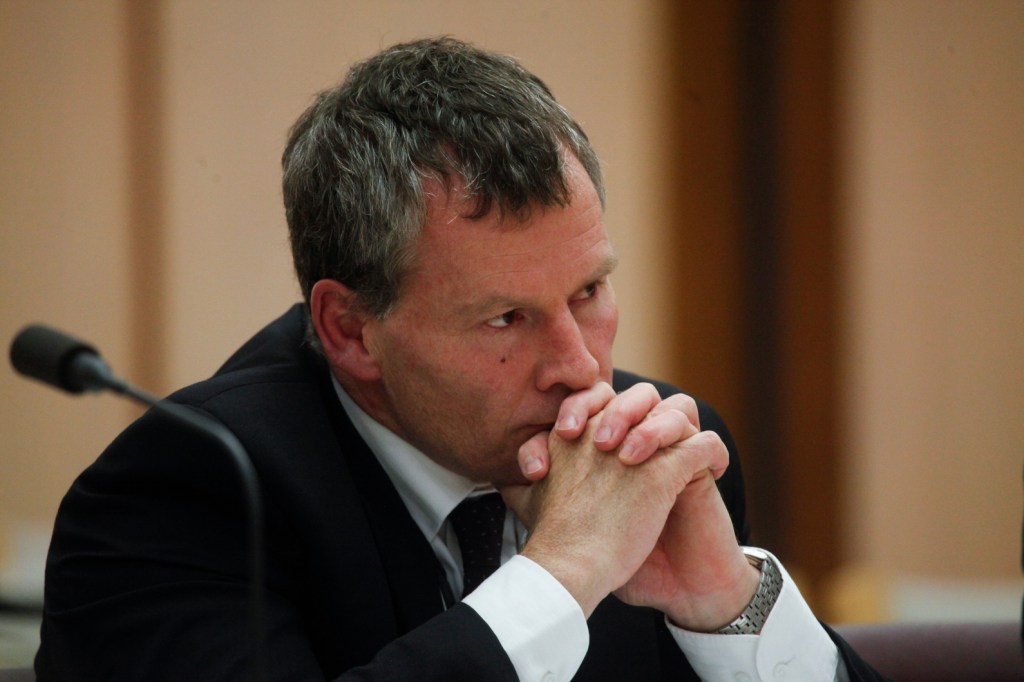
The Australian Taxation Office (ATO) looks poised to return to big-picture, big-target initiatives to target long-term structural reform under the Albanese government after, the public servant who ran the secretariat for the Henry Tax Review secured the revenue agency’s top job.
Treasurer Jim Chalmers has revealed that Rob Heferen, who currently heads the Australian Institute of Health and Welfare, will replace retiring taxation commissioner Chris Jordan after a merit-based selection process.
He beat out inside candidates including highly respected technocrat Jeremy Hirschhorn, who prevented the toxic contagion of robodebt from infecting the ATO.
A seasoned deputy secretary for more than a dozen years since 2010, Heferen’s deputisations have spanned across Indigenous policy at the Department of Social Services, revenue at Treasury, the energy division at the Department of Environment and Energy, and the higher education, research and international division at the Department of Education, Skills and Employment.
A research fellow at the Australian National University’s Crawford School of Public Policy’s Tax and Transfer Policy Institute, Heferen joined the Australian Public Service as a graduate in 1989 with Customs.
While some sections of the APS notably suffered in terms of their resourcing, support and performance during the most recent coalition years — like welfare and environment – the Tax Office went from strength to strength as it pursued brutal simplicity and efficiency in customer experience, tightly nuanced automation and artificial intelligence deployments and long-term data-driven reforms like Single Touch Payroll.
Part of that efficiency push was the policy settings of the previous government that viewed government-to-market price signals with overt hostility — think “technology not taxes” – especially any revenue moves on the energy, resources and minerals sector.
To be fair there was some fairly gutsy regulation action on the multinational transfer pricing front, but this came as a global imperative where tech and cloud platforms had really just refused to pay tax anywhere, a position that then inverted for them. Even so, the ATO was instrumental in this.
It’s Heferen’s deep systemic experience with the energy, renewables and employment and social welfare sectors that really stand out because this is where the government needs a viable policy path forward without giving succour to the brutally effective ‘Mining Tax’ campaigns that hammered the Rudd and Gillard government’s into a state of confusion, then anxiety and then panic.
A lesser-known aspect of the ostensibly big-ticket ad blitz launched by the minerals and mining lobby was that Labor then was partly paralysed by its self-imposed ban on government advertising after it had decried the Howard government for creating taxpayer-funded political propaganda.
The minerals council happily filled the void, literally, as distressed ad inventory was cheaply liquidated, amplifying the messaging to look like an all-out assault.
Kevin Rudd never saw out that term as Prime Minister, despite the “Australia’s Future Tax System Review” led by Treasury secretary Ken Henry Review that specifically looked at and recommended tapping resources and mining super profits (eg. the Mineral and Resources Rent Tax and Mining Super Profits Tax).
There was also the huge issue of using pricing to deal with carbon pollution that soon became weaponised during the climate culture wars and unrelentingly haunted the Gillard government.
During this time, now Treasurer Jim Chalmers was a senior adviser to treasurer Wayne Swan, both hailing from Queensland.
After a decade in Treasury, which included helping to design the GST, Heferen was elevated to depsec at Social Services in 2010. He was at the ATO for three years before going to Treasury.
The biggest unknown is what Heferen’s plans for the ATO are post-Jordan.
Both Chris Jordan and Jeremy Hirschhorn are ex-KPMG, with Jordan the former chair of the consultancy group and Hirschhorn a former partner.
As whiffy as Big Four consultancies are at the moment, losing Hirschhorn from the public service at the moment would be a loss. For all of the many and varied sins of the Big Four, KPMG especially has been a major tech talent supplier to the government and having a former insider on the APS payroll is massively cheaper than paying market rates for the same outcomes.
A talent transplant from second commissioner of taxation to chief executive and rescuer at Services Australia must surely have crossed many minds in Cabinet and the top of the APS.
The only impediments are the $3 million-$4 million difference in salary Hirschhorn could attract in the private sector and an apparent inability within the APS to hang anyone out to dry over robodebt.
One thing is for sure. With a seven-year term and 30 years’ APS experience behind him, Heferen will start as he means to continue.
READ MORE:

